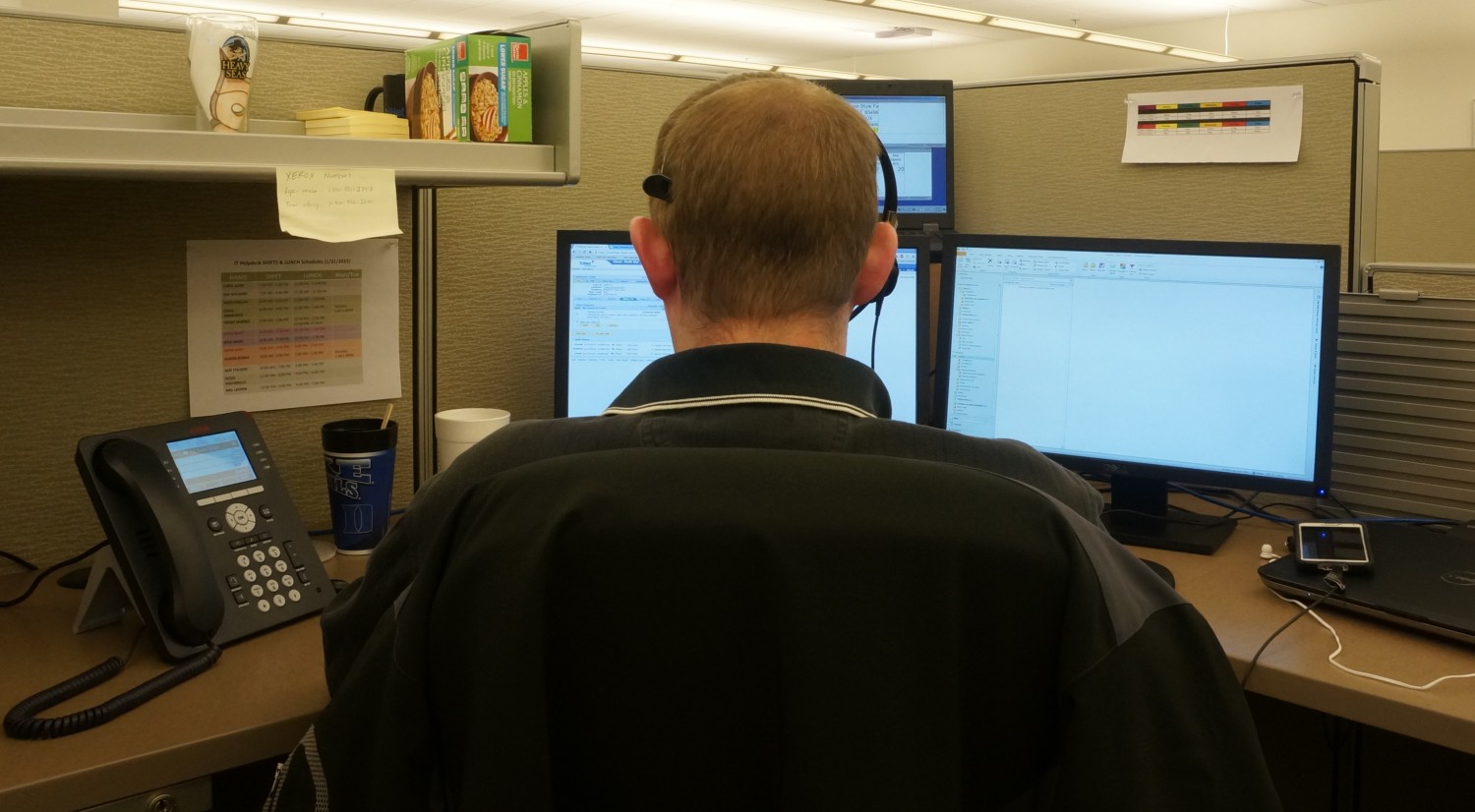aNewDomain — Most people know that Silicon Valley has a diversity problem. Women and ethnic minorities are underrepresented in Big Tech. Racist and sexist job discrimination is obviously unfair. It also shapes a toxic, insular white male “bro” culture that generates periodic frat-boy eruptions. (See, for example, the recent wine-fueled rant of an Uber executive who mused — to journalists — that he’d like to pay journalists to dig up dirt on journalists who criticize Uber. What could go wrong?)
After years of criticism, tech executives are finally starting to pay attention — and some are promising to recruit more women, blacks and Latinos.
This is progress, but it still leaves Silicon Valley with its biggest dirty secret: rampant, brazen age discrimination.
“Walk into any hot tech company and you’ll find disproportionate representation of young Caucasian and Asian males,” University of Washington computer scientist Ed Lazowska told The San Francisco Chronicle. “All forms of diversity are important, for the same reasons: workforce demand, equality of opportunity and quality of end product.”
Overt bigotry against older workers — we’re talking about anyone over 30 here — has been baked into the Valley’s infantile attitudes since the dot-com crash 14 years ago.
Life may begin at 50 elsewhere, but in the tech biz the only thing certain about middle age is unemployment.
The tone is set by the industry’s top CEOs. “When Mark Zuckerberg was 22, he said five words that might haunt him forever. ‘Younger people are just smarter,’ the Facebook wunderkind told his audience at a Y Combinator event at Stanford University in 2007. If the merits of youth were celebrated in Silicon Valley at the time, they have become even more enshrined since,” Alison Griswold writes in Slate.
It’s illegal, under the federal Age Discrimination in Employment Act of 1967, to pass up a potential employee for hire, or to fail to promote, or to fire a worker, for being too old. But don’t bother telling that to a tech executive. What used to be a meritocracy has become a don’t-hire-anyone-over-30 situation (certainly not over 40) — right under the nose of the tech media.
Which isn’t surprising. The supposed watchdogs of the Fourth Estate are wearing the same blinders as their supposed prey. The staffs of news sites like Valleywag and Techcrunch skew as young as the companies they cover.
A 2013 BuzzFeed piece titled “What It’s Like Being The Oldest BuzzFeed Employee” (subhead: “I am so, so lost, every workday.”) by a 53-year-old BuzzFeed editor “old enough to be the father of nearly every other editorial employee” (average age: late 20s) reads like a repentant landlord-class sandwich-board confession during China’s Cultural Revolution: “These whiz-kids completely baffle me, daily. I am in a constant state of bafflement at BF HQ. In fact, I’ve never been more confused, day-in and day-out, in my life.” It’s the most pathetic attempt at self-deprecation I’ve read since the transcripts of Stalin’s show trials.
A few months later, the dude got fired by his boss (15 years younger): “This is just not working out, your stuff. Let’s just say, it’s ‘creative differences.'”
Big companies are on notice that they’re on the wrong side of employment law. They just don’t care.
Slate reports: “In 2011, Google reached a multimillion-dollar settlement in a … suit with computer scientist Brian Reid, who was fired from the company in 2004 at age 54. Reid claimed that Google employees made derogatory comments about his age, telling him he was ‘obsolete,’ ‘sluggish,’ and an ‘old fuddy-duddy’ whose ideas were ‘too old to matter.’ Other companies — including Apple, Facebook, and Yahoo — have gotten themselves in hot water by posting job listings with ‘new grad‘ in the description. In 2013, Facebook settled a case with California’s Fair Employment and Housing Department over a job listing for an attorney that noted ‘Class of 2007 or 2008 preferred.'”
Because the fines and settlements have been mere slaps on the wrist, the cult of the Youth Bro is still going strong.
To walk the streets of Austin during tech’s biggest annual confab, South by Southwest Interactive, is to experience a society where Boomers and Gen Xers have vanished into a black hole. Photos of those open-space offices favored by start-ups document workplaces where people over 35 are as scarce as women on the streets of Kandahar. From Menlo Park to Palo Alto, token forty-somethings wear the nervous shrew-like expressions of creatures in constant danger of getting eaten — dressed a little too young, heads down, no eye contact, hoping not to be noticed.
“Silicon Valley has become one of the most ageist places in America,” Noam Scheiber reported in a New Republic feature that describes tech workers as young as 26 seeking plastic surgery in order to stave off the early signs of male pattern baldness and minor skin splotches on their faces.
Whatever you do, don’t look your age — unless your age is 22.
Scheiber continues, “Robert Withers, a counselor who helps Silicon Valley workers over 40 with their job searches, told me he recommends that older applicants have a professional snap the photo they post on their LinkedIn page to ensure that it exudes energy and vigor, not fatigue. He also advises them to spend time in the parking lot of a company where they will be interviewing so they can scope out how people dress.”
Paul Graham, the head of the most prominent start-up incubator, told The New York Times that most venture capitalists in the Valley won’t take a pitch from anyone over 32.
In early November, VCs handed over several hundred thousand bucks to a 13-year-old.
Aside from the legal and ethical considerations, does Big Tech’s cult of youth matter? Scheiber says hell yes: “In the one corner of the American economy defined by its relentless optimism, where the spirit of invention and reinvention reigns supreme, we now have a large and growing class of highly trained, objectively talented, surpassingly ambitious workers who are shunted to the margins, doomed to haunt corporate parking lots and medical waiting rooms, for reasons no one can rationally explain. The consequences are downright depressing.”
One result of ageism that jumps to the top of my mind is brain drain. Youthful vigor is vital to success in business. So is seasoned experience. The closer an organization reflects society at large, the smarter it is.
A female colleague recently called to inform me that she was about to get laid off from her job as an editor and writer for a major tech news site. (She was, of course, the oldest employee at the company.) Naturally caffeinated, addicted to the Internet and pop culture, she’s usually the smartest person in the room. I see lots of tech journalism openings for which she’d be a perfect fit, yet she’s at her wit’s end. “I’m going to jump off a bridge,” she threatened. “What else can I do? I’m 45. No one’s ever going to hire me.” Though I urged her not to take the plunge, I couldn’t argue with her pessimism. Objectively, though, I think the employers who won’t talk to her are idiots. For their own sakes.
Just a month before, I’d met with an executive of a major tech news site who told me I wouldn’t be considered for a position due to my age. “Aside from being stupid,” I replied, “you do know that’s illegal, right?”
“No one enforces it,” he said, shrugging it off. And he’s right. The feds don’t even keep national statistics on hiring by age.
The median American worker is age 42. The median age at Facebook, Google, AOL and Zynga, on the other hand, is 30 or younger. Twitter, which recently got hosed in an age discrimination lawsuit, has a median age of 28.
Big Tech doesn’t want you to know they don’t hire middle-aged Americans. Age data was intentionally omitted from the recent spate of “we can do better” mea culpa reports on company diversity.
It’s easy to suss out why: they prefer to hire cheaper, more disposable, more flexible (willing to work longer hours) younger workers. Apple and Facebook recently made news by offering to freeze its female workers’ eggs so they can delay parenthood in order to devote their 20s and 30s to the company.
The dirty secret is not so secret when you scour online want ads. “Many tech companies post openings exclusively for new or recent college graduates, a pool of candidates that is overwhelmingly in its early twenties,” Verne Kopytoff writes in Fortune.
“It’s nothing short of rampant,” said UC David’s Comp Sci Professor Norm Matloff, about age discrimination against older software developers. Adding to the grim irony for Gen Xers: today’s forty-somethings suffer reverse age discrimination at the hands of Boomers in charge when they were entering the workforce.
Once too young to be trusted, now too old to get hired.
Ageist hiring practices are so over-the-top illegal, you have to wonder: Do these jerks have in-house counsel?
Kopytoff: “Apple, Facebook, Yahoo, Dropbox, and video game maker Electronic Arts all recently listed openings with ‘new grad’ in the title. Some companies say that recent college graduates will also be considered and then go on to specify which graduating classes—2011 or 2012, for instance—are acceptable.”
The feds take a dim view of these ads.
“In our view, it’s illegal,” Raymond Peeler, senior attorney advisor at the Equal Employment Opportunity Commission, told Kopytoff. “We think it deters older applicants from applying.” Gee, you think? But the EEOC has yet to smack a tech company with a big fine.
The job market is supposed to eliminate efficiencies like this, where companies that need experienced reporters fire them while retaining writers who are so wet behind the ears you want to check for moss. But ageism is so ingrained into tech culture that it’s part of the scenery, a cultural signifier like choosing an iPhone over Android. Everyone takes it for granted.
Scheiber describes a file storage company’s annual Hack Week, which might as well be scientifically designed in order to make adults with kids and a mortgage run away screaming: “Dropbox headquarters turns into the world’s best-capitalized rumpus room. Employees ride around on skateboards and scooters, play with Legos at all hours, and generally tool around with whatever happens to interest them, other than work, which they are encouraged to set aside.”
No matter how cool a 55-year-old you are, you’re going to feel left out. Which, one suspects, is the point.
It’s impossible to overstate how ageist many tech outfits are.
Electronic Arts contacted Kopytoff to defend its “new grad” employment ads, only to confirm their bigotry. The company “defended its ads by saying that it hires people of all ages into its new grad program. To prove the point, the company said those accepted into the program range in age from 21 to 35. But the company soon had second thoughts about releasing such information, which shows a total absence of middle-aged hires in the grad program, and asked Fortune to withhold that detail from publication.” (Fortune declined.)
EA’s idea of age diversity is zero workers over 35.
Here is one case where an experienced forty-, or fifty-, or even sixty-something in-house lawyer or publicist might have saved them some embarrassment — and legal exposure.
In the big picture, Silicon Valley is hardly an engine of job growth; they haven’t added a single net new job since 1998. “Big” companies like Facebook and Twitter only hire a few thousand workers each. Instagram famously only had 13 when it was purchased by Facebook. They have little interest in contributing to the commonwealth. Nevertheless, tech ageism in the tiny tech sector has a disproportionately high influence on workplace practices in other workspaces. If it is allowed to continue, it will spread to other fields.
It’s hard to see how anything short of a massive class-action lawsuit — one that dings tech giants for billions of dollars — will make Big Tech hire Xers, much less Boomers.
For aNewDomain, I’m Ted Rall.













30 years pass quickly, and these wunderkind will be in the same boat everyone over 50 is right now. How they deal with it and their own mortality would be interesting if any of we “irrelevant” people were around to care.
The interesting thing is what’s never talked about: WHY no one will hire “old people.” One unusually honest kid said (in an online forum), “It’s because old people are ugly.”
That’s really the only issue. It’s not even one of culture. If we X-ers suddenly looked 20 and were this qualified, we’d get hired even if we were more reserved and read books instead of skateboarded.
And if I’m honest, I’ll admit, “Yes, old people ARE ugly. And real old people are revolting.” No I’m not gloating or being mean; it’s the truth everyone is afraid to say.
If it helps, I’m on the receiving end of that now. I interviewed at AOL and I was so much older than everybody walking down the hall that I felt self-conscious and creepy. It was like trying to fit in with the children at a middle school cafeteria.
I was interviewed by a KID! It felt surrealistic, like some kind of crappy sci-fi movie on TV. I think it was embarrassing for both of us. I had huge experience in a very specific and rare thing (I’ve also published in it). The kid even said that he’d never seen anyone with this much experience in this particular thing, but I didn’t get the job.
Why? Because even though I might look sexy to you, 20 year-olds see me like they would see their friend’s mom: not one of “us”, not a person. Not human.
Fat women have the same problem, and blacks.
But think about it. If you had the choice, would you hire a balding, pudgy 60 year-old man to be your secretary instead of a slightly-less qualified 20 year-old girl?
No.
So don’t complain.
I realized all this many years ago when I saw the guy who owned a donut shop. He had been terribly burned, probably much earlier in his life, and he looked hideous. He was hard to even look at. No way would he be the cashier at a donut shop if he didn’t happen to own it. Sure, I felt terribly sorry for him, and I even went to his shop specifically because UI thoughh maybe other people wouldn’t. But if he had asked me out on a date, I’d have to make an embarrassing, obvious excuse.
The problem isn’t that young people won’t hire old ones, any more than racists hate the color brown. Nor is it a pecking order. The problem is simply that old people look very different, and are not what younger people prefer to hang around with if they can make a choice.
Old people are, for lack of a better term, “ugly,” like it or lump it. Nobody wants to do anything at all with us, on the job, sitting in a bar, at a party, or anywhere else.
–faye kane,
who photoshopped her picture to look young
“would you hire a balding, pudgy 60 year-old man to be your secretary instead of a slightly-less qualified 20 year-old girl?” Yes, because I’m wise enough to know a lack of experience is just going to embarrass me later. Everyone is indeed an idiot in their 20s. You were, I was. Most of us outgrow it, blessedly.
Instagram went public? When?
[…] Startup article found at: https://anewdomain.net2014/12/11/dont-hire-anyone-30-ageism-silicon-valley/ […]
Shit I’d hire these old smart people.
I’m 53 and well known in my field (I have a wikipedia page.) Searched for over 2 years with over 400+ C-level contacts on LInkedIn, applied via websites hundreds of times and I was unable to get a salaried position at silicon valley companies on projects in fields that I *(co)invented*! Sold my Palo Alto house for a killing and moved to Oakland.
Good article! Couple corrections: UC Davis, not UC David. And Instagram never went public. It was acquired by Facebook.
There’s a simple reason these companies prefer new grads and younger workers – they’re easier to exploit. You can pay them less and treat them worse, and they don’t have the experience and support networks to fight back.
My one consolation is that these youngsters will have a much better view of the hell climate change is bringing the world. And their kids? lol
{gotta take your silver linings where you can!)
Nothing really new here about the “secret” ageism here. Maybe some 50 something, or, OMG, a 60 something will start a company that doesn’t need VC capital or anyone under 30. Technology, innovation, creativity and execution is blind to age. But seriously, a lot of this is self inflicted by those over 30 who are just not current with new transformative technologies, local jargon and vocabulary, gadgetry, novel business models, etc. If a Silicon Valley Senior (SVS) is smart, relevant and hip to what is happening, they can survive here just fine. There are thousands of B2C and B2B tech companies that hire capability regardless of age. It’s really about how you carry yourself and what confidence you have. Hell, I’m way over 30 and fit in just fine…not intimidated at all maybe until I go to a meet up :). But, I feel like I am current and bring domain expertise, maturity, perspective, confidence, credibility and resources that very few can match at any age. Most importantly, I show respect to a generation of uniquely talented and smart innovators. But, that respect needs to go both ways.
For those employers that seek only to employ the under 30 crowd and believe what Zuck said about being “smarter”, well, they’re just arrogant and simpleminded and the recruiters, well, they’re just assholes. Sorry, but the under 30 crowd does not have a monopoly on good ideas, capability or energy. For me, I have a rule and maybe that comes with age and experience. My #1 rule is that we don’t discriminate at all, especially with age and I don’t work with assholes.
“Hell, I’m way over 30 and fit in just fine”
Get back to us when you’re 48 and looking for a new job in SV, or 56 and trying to keep your current one. Your limited experience and narrow views don’t negate the experiences and views of a large group of people. You sound like all the biggest assholes in SV, “There isn’t sexism here, just not enough qualified females” and “H1B visa applicants are NOT taking peoples’ jobs, they’re just the only way for our multi-billion dollar company to survive”. Sili-Cons preach a lot of nonsense and pretend to be “insiders” and know how everything works in the valley. The second you presume to know and speak for the experiences of others in SV you become just another poseur talking out the wrong end.
Like I said…let us know how your age isn’t effecting employment options in SV when you’re actually in the demographic that it effects. Your “I’m way over 30” BS (which means you aren’t even 40 yet) isn’t buying you cred in this subject.
My rule for hiring has always been, if your great, you’re hired, if you’re s**t you’re not. Very simple. I look for the best and want to retain them and have a friendly atmosphere to my groups. Diversity = creative and friendly environment. Actually younger guys can be a pain as they are arrogant and inefficient. That’s why you need a balance of ages, races, sexes, skill and whatnot. Very much so in the high tech.
“if your great, you’re hired”…. wow, with that powerful command of the English language, what exactly are you hiring people for, oh captain of industry?
Clearly he is “very much so in the high tech”, hahahaha. And of course, this internet genius’s handle has “chronic” in it… #smdh
You can blame the oh-so-great spell checkers for auto-correcting that. Obviously the correct grammar is “you’re” and “you’re”. Yes, the bastions of industry make mistakes too !!
So if you’re me -a white male in his 30’s, you’re REALLY screwed, because you’re past the age cap, AND no one’s fighting for you on the “women blacks and latinos” front!